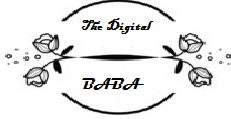
Safety and pharmacovigilance are critical components of the pharmaceutical industry. Both play a crucial role in ensuring the safety and efficacy of drugs and medical devices. They are essential to protect public health.
Pharmacovigilance refers to the science and activities related to detecting, assessing, understanding, and preventing adverse effects or other drug-related problems. Pharmacovigilance aims to improve patient safety by detecting and evaluating potential adverse events and ensuring that the benefits of a drug outweigh its risks.
- The World Health Organization (WHO) estimates that adverse drug reactions cause approximately 1.2 million deaths globally each year.
- The U.S. Food and Drug Administration (FDA) receives approximately 1.3 million adverse event reports, with around 100,000 being severe.
- The European Medicines Agency (EMA) receives approximately 880,000 adverse event reports, with around 10% being severe.
The importance of pharmacovigilance and drug safety has been increasingly recognized in recent years, leading to increased funding and resources dedicated to monitoring and ensuring the safety of drugs on the market.
What is Aggregate Reporting in pharmacovigilance?
Aggregate reporting in pharmacovigilance is regularly collecting, analyzing, and reporting safety data. It involves compiling safety data from multiple sources, such as clinical trials, post-marketing surveillance, and spontaneous reporting, to provide a comprehensive overview of the safety profile of a drug. This information is used to identify any potential safety signals and to make informed decisions about the continued use of a drug.
Why should we outsource drug safety and pharmacovigilance?
Drug safety and pharmacovigilance are often outsourced due to the increasing complexity of the industry and the growing demand for expert knowledge. Outsourcing provides access to specialized expertise, reducing the burden on internal resources and increasing the efficiency of safety processes. Companies also benefit from increased flexibility and cost savings by outsourcing to technical service providers.
One benefit of outsourcing pharmacovigilance is accessing a global network of experts for specific therapeutic areas and adverse event management. Outsourced service providers have extensive experience managing negative event reporting systems, conducting safety assessments, and providing recommendations on risk management strategies.
Another advantage of outsourcing is reducing the risk of non-compliance with regulatory requirements. Service providers have a deep understanding of the global regulatory environment. They can provide tailored guidance to ensure that companies meet the regulatory requirements in each country where their products are marketed.
Outsourcing can also increase efficiency and speed up the pharmacovigilance process. Service providers have access to the latest technologies and tools, such as electronic case processing systems, that can automate and streamline many of the manual processes involved in pharmacovigilance.
Key takeaways
Pharmacovigilance is a critical component of the pharmaceutical industry and plays a crucial role in ensuring the safety and efficacy of drugs. Aggregate reporting provides a comprehensive overview of a drug’s safety profile, while outsourcing provides access to specialized expertise, reduces the risk of non-compliance, and increases efficiency and speed. Pharmacovigilance will become increasingly important in ensuring public health and protecting patients as the pharmaceutical industry continues to grow and evolve.


